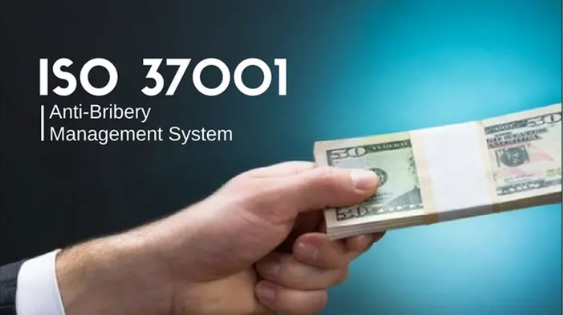The pharmaceutical industry operates in one of the most highly regulated environments in the world. Yet, even with stringent internal controls, third-party risks remain a major vulnerability. Distributors, suppliers, agents, and contractors—often located in countries with varying legal frameworks—can expose pharmaceutical companies to bribery, corruption, and compliance failures. To tackle this growing concern, many pharma leaders are turning to ISO 37001, the international standard for anti-bribery management systems.
By the third line, it’s clear that ISO 37001 is not just a compliance tool—it’s a strategic response to increasing global scrutiny and operational complexity in pharma.
Understanding ISO 37001
ISO 37001 is a globally recognized standard designed to help organizations implement and maintain an anti-bribery management system. It provides a framework for detecting, preventing, and responding to bribery in both public and private sector transactions. Key components include due diligence procedures, internal controls, whistleblower channels, and ongoing risk assessments.
Importantly, ISO 37001 does not guarantee that bribery will never occur, but it demonstrates that a company has taken reasonable steps to prevent and detect it. For pharmaceutical companies working with hundreds or even thousands of third parties across diverse jurisdictions, this assurance is crucial.
Why Third-Party Risk Is a Major Concern in Pharma
Pharmaceutical firms rely heavily on intermediaries to navigate markets, secure approvals, distribute products, and conduct clinical trials. But with that reliance comes risk:
- Distributors may offer kickbacks to doctors or government officials to secure sales.
- Regulatory consultants might bribe public officials for expedited approvals.
- Local agents or contract sales organizations (CSOs) may not follow corporate ethics policies.
Even if the core company is not directly involved, regulators hold it accountable for the actions of third parties operating on its behalf. ISO 37001 helps create a structured approach to identifying and mitigating these risks.
Benefits of ISO 37001 for Pharma Companies
1. Standardizing Anti-Bribery Controls Across Global Operations
Pharmaceutical firms often operate in over 100 countries. ISO 37001 provides a unified structure for applying anti-bribery controls across geographies, cultures, and legal systems. This global consistency is especially valuable in managing third parties in high-risk regions.
2. Strengthening Due Diligence for Partners and Vendors
Third-party vetting is a core element of ISO 37001. Companies must evaluate the background, reputation, and history of vendors, agents, or joint-venture partners. This structured due diligence reduces the chances of engaging with unethical or non-compliant partners.
3. Demonstrating Compliance to Regulators and Stakeholders
When faced with investigations or audits, ISO 37001 certification serves as a credible proof that the company follows international best practices. It can reduce legal exposure, penalties, and reputational damage in the event of compliance breaches involving third parties.
4. Enhancing Internal Accountability
ISO 37001 places responsibility at every level of the organization—from top executives to front-line employees. This drives a culture of ethical conduct that extends to the external supply chain. Leadership must set the tone, while compliance teams monitor execution and reporting.
5. Improving Reputation and Competitive Advantage
Companies that are ISO 37001 certified stand out to investors, regulators, and clients as proactive and trustworthy. In tenders, licensing agreements, or mergers, this certification can become a differentiator—especially when working with governments or global health organizations.
How ISO 37001 Works in Practice
For a pharmaceutical company, implementing ISO 37001 includes:
- Risk mapping to identify which third parties pose the highest anti-bribery risk.
- Contractual clauses that bind third parties to anti-bribery commitments.
- Regular audits and monitoring of third-party behavior and transactions.
- Whistleblower mechanisms that encourage reporting of suspected violations.
The implementation is not a one-time exercise but an ongoing cycle of evaluation, response, and improvement—fully aligned with the risk-based nature of pharma operations.
Preparing for ISO 37001 Certification
To achieve ISO 37001 certification, pharma companies need to:
- Conduct a gap analysis between current anti-bribery practices and ISO requirements.
- Assign a compliance team or officer responsible for implementation.
- Develop and document policies addressing bribery and third-party engagement.
- Engage independent auditors for certification after internal preparation.
- Monitor and improve processes post-certification to stay aligned with evolving risks.
Final Thoughts
Pharmaceutical companies face increasing scrutiny from regulators, healthcare authorities, and the public. As operations expand and third-party relationships grow more complex, the risk of bribery and corruption becomes harder to control. That’s why leading firms are adopting ISO 37001—not as a checkbox, but as a strategic defense against one of the industry’s most persistent threats.
By embedding ISO 37001 into their global operations, pharma leaders can demonstrate integrity, reinforce compliance, and mitigate the financial and reputational risks posed by third parties. In an era where trust matters more than ever, this certification helps companies lead responsibly—and safely.

